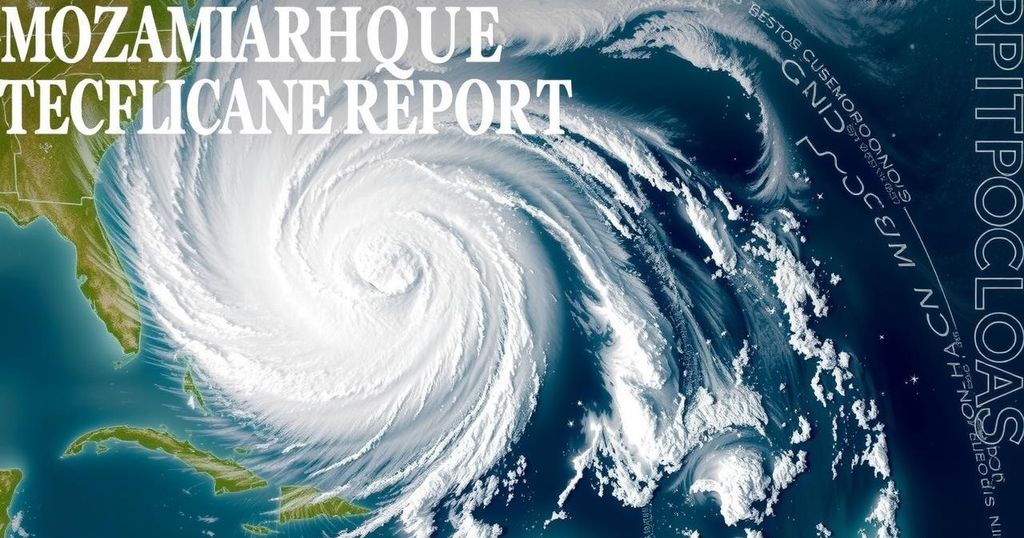CCCM Cluster Mozambique: Response to Tropical Cyclone Chido as of December 30, 2024

The Tropical Cyclone Chido has severely impacted southern districts of Mozambique as of December 30, 2024, leading to loss of life, infrastructural damage, and increased humanitarian needs. The CCCM Cluster partners are coordinating with local authorities to provide assistance, but many affected families lack proper accommodation. Urgent improvements in living conditions, sanitation, and community facilities are necessary to support recovery efforts for displaced individuals.
The Intense Tropical Cyclone Chido made landfall in the Mecúfi district of Mozambique on December 15, 2024, adversely affecting various districts in Cabo Delgado, Niassa, and Nampula. The cyclone resulted in significant infrastructural damage, loss of lives, injuries, and displacement of communities, exacerbating humanitarian needs in both urban and rural areas, particularly within existing displacement sites. The CCCM Cluster partners, including IOM, UNHCR, ASMOG, and Pronanac, have been actively coordinating with local authorities and other humanitarian agencies to address these urgent needs between December 14 and December 30, 2024.
Despite the deployment of four designated accommodation centers in Cabo Delgado province, assessments indicate that many affected individuals continue to seek refuge in makeshift shelters, such as neighboring yards and schools, complicating effective assistance efforts. It is vital for these shelters to receive appropriate designation to streamline coordination among CCCM teams, local entities, and community committees. Additionally, the report highlights the necessity of improving living conditions, encompassing access to sanitation, hygiene facilities, lighting, and other basic services, which are crucial for affected populations, particularly vulnerable individuals.
The cyclone has also necessitated the replanning of certain neighborhoods to restore original layouts and enhance accessibility. Furthermore, the destruction of community facilities, including information and communication centers, requires urgent attention through support for local committees and cash-for-work initiatives. While UNHCR and Pronanac have stepped back from the management of three accommodation centers, IOM remains active, offering essential support through mobile teams in collaboration with local authorities to assist families who have been impacted by the cyclone.
The report on the Tropical Cyclone Chido outlines the challenges faced by communities in Mozambique following the cyclone’s destructive impact. The National Institute for Disaster Risk Reduction Management (INGD) has documented an increase in humanitarian needs arising from infrastructural damage and displacement caused by the cyclone. The CCCM partners are coordinating efforts to address the needs of affected populations, with a focus on shelter, basic services, and improving living conditions for displaced individuals and families. This context requires immediate action to improve coordination and enhance recovery efforts in the affected regions.
In summary, the situation following Tropical Cyclone Chido necessitates a concerted response to address critical humanitarian needs in affected areas of Mozambique. Key actions undertaken by CCCM Cluster partners highlight the importance of coordinated efforts to manage accommodations, improve living conditions, and provide essential services. The challenges presented by ongoing displacement and infrastructural damage emphasize the urgent need for effective planning, support, and resource allocation to facilitate recovery and enhance the resilience of impacted communities.
Original Source: reliefweb.int








